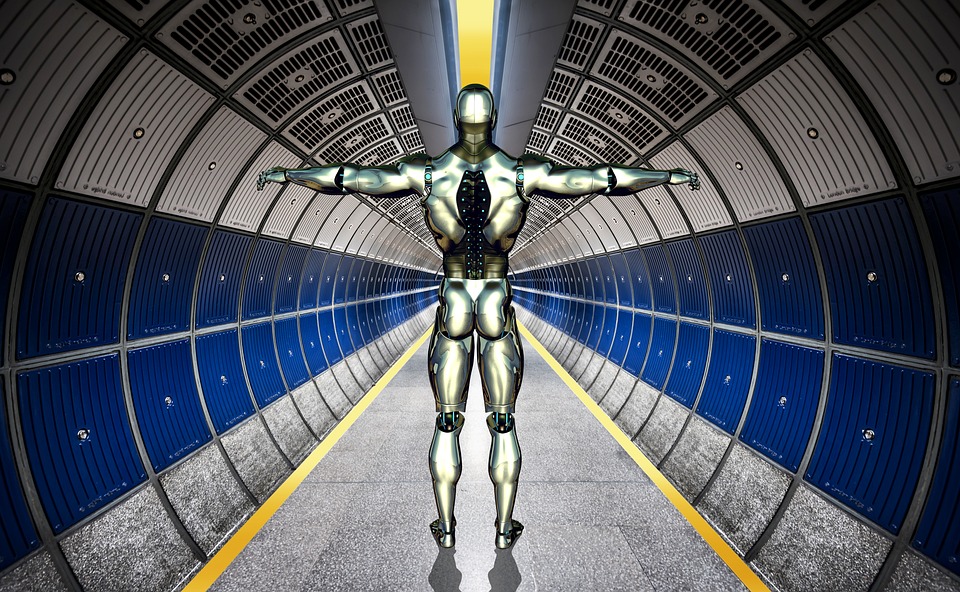[ad_1]
#Artificial #Intelligence #Frontier #Technology
Artificial Intelligence: The Next Frontier in Technology
Artificial intelligence (AI) has become one of the most talked about and rapidly advancing technologies in recent years. From virtual assistants like Siri and Alexa to self-driving cars and advanced medical diagnostics, AI is revolutionizing the way we live and work. In this article, we will explore the potential of AI as the next frontier in technology and its impact on various industries.
The Potential of AI
The potential of AI lies in its ability to mimic human intelligence and perform tasks that would normally require human cognitive functions. This includes learning, reasoning, problem-solving, perception, and language understanding. With the advancements in machine learning and deep learning, AI can now analyze and interpret massive amounts of data to make predictions, automate tasks, and optimize processes.
One of the key areas where AI is making significant strides is in healthcare. AI-powered diagnostic tools can analyze medical images, genetic data, and patient records to identify diseases and recommend personalized treatment plans. This has the potential to improve patient outcomes and reduce healthcare costs.
In addition to healthcare, AI is also transforming the transportation industry. Self-driving cars and trucks are being developed to improve road safety, reduce traffic congestion, and provide mobility options for those unable to drive. These vehicles rely on AI algorithms to perceive their surroundings, make real-time decisions, and navigate complex road environments.
The Impact of AI on Industries
The impact of AI on industries is far-reaching. In manufacturing, AI-enabled robots and machines are automating repetitive tasks, increasing production efficiency, and reducing errors. In finance, AI is being used for fraud detection, risk assessment, and algorithmic trading. In retail, AI is powering personalized recommendations, chatbots for customer service, and inventory management.
AI is also revolutionizing the way we interact with technology. Virtual assistants can understand and respond to natural language commands, making it easier for users to access information and perform tasks. AI-powered smart home devices can learn and adapt to user preferences, providing a more seamless and personalized experience.
The Future of AI
As AI continues to advance, the possibilities are endless. The development of general AI, or artificial general intelligence (AGI), which can perform any intellectual task that a human can do, is a long-term goal for many researchers. While we are not there yet, progress in AI research and development is accelerating at a rapid pace.
There are also ethical and societal implications to consider as AI becomes more integrated into our daily lives. As AI systems become more autonomous and make decisions that affect human lives, it is crucial to ensure transparency, accountability, and ethical governance. This includes addressing issues such as bias in AI algorithms, data privacy, and the impact of AI on jobs and employment.
Summary
Artificial intelligence (AI) is the next frontier in technology, with the potential to revolutionize various industries such as healthcare, transportation, manufacturing, finance, and retail. AI has the ability to mimic human intelligence, analyze large amounts of data, and automate tasks, leading to improved efficiency, better decision-making, and enhanced user experiences. As AI continues to advance, it is important to consider the ethical and societal implications and ensure responsible development and deployment.
FAQs
What is artificial intelligence?
Artificial intelligence is the ability of machines to mimic human cognitive functions such as learning, reasoning, problem-solving, perception, and language understanding. It involves the development of algorithms and models that enable machines to analyze data, make predictions, and automate tasks.
How is AI impacting industries?
AI is impacting industries in various ways, including automating repetitive tasks, improving decision-making, optimizing processes, and enhancing user experiences. In healthcare, AI is being used for diagnostic tools and personalized treatment plans. In transportation, AI is powering self-driving vehicles. In finance, AI is used for fraud detection and risk assessment. In retail, AI is driving personalized recommendations and chatbots for customer service.
What are the future implications of AI?
As AI continues to advance, there are many future implications to consider, including the development of general AI (artificial general intelligence), ethical and societal implications, and the impact on jobs and employment. It is important to ensure responsible development and deployment of AI systems to address issues such as bias, transparency, accountability, and data privacy.
1706486183
[ad_2]
